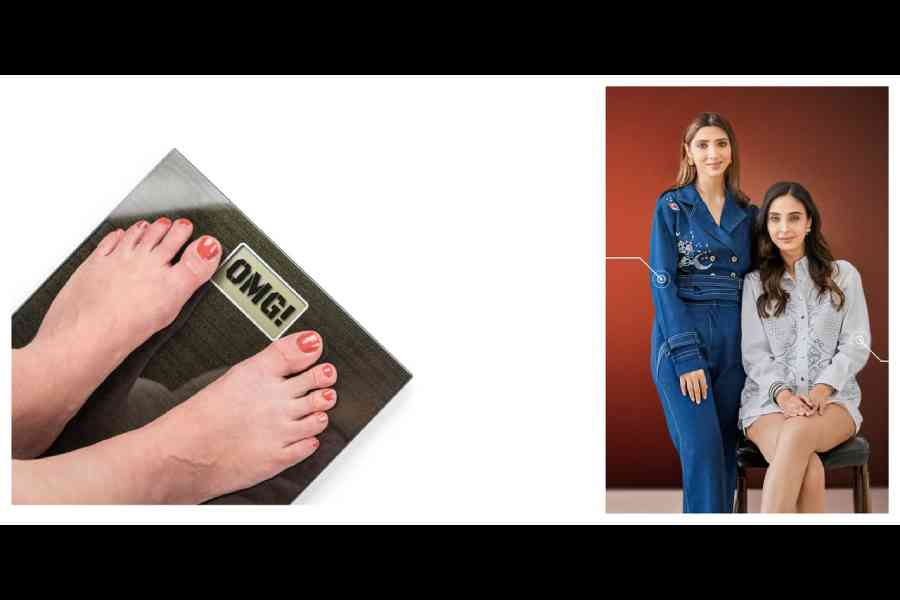Maintaining a healthy lifestyle can feel like a maze of conflicting advice, especially for women between 30 and 60. In the rush to juggle career, family, and personal well-being, many fall into common pitfalls that undermine their nutrition and fitness efforts. From emotional eating to chasing the latest health fads, these mistakes are often born from myths or pressures that don’t hold up to science. By recognising these habits and understanding the facts, it’s possible to chart a smarter, more sustainable path to health.
Detox Dilemmas
From juice cleanses to “tea-toxes,” the idea of detoxing has become a go-to quick fix. It promises a reset for your system, rapid weight loss and better energy. But the reality is far less magical. Your body has its own detoxification system — your liver, kidneys, skin, and lungs — working 24/7 to keep you in balance. There’s little scientific support for the claim that commercial detoxes eliminate toxins more effectively than your body already does. In fact, extreme cleanses can cause fatigue, nutrient deficiencies, muscle loss, and even gut dysfunction. Instead of chasing the latest cleanse, focus on consistent habits. Your body’s natural detox systems will thank you, and you’ll avoid the rollercoaster of fad diets.
Supplement Phobia
Many women are hesitant about supplements — whether it’s protein powder, creatine, or even basic vitamins — often out of fear that these products are unnatural or will somehow bulk them up or cause side effects. While it’s wise to be cautious, blanket avoidance can be a mistake if it means missing out on valuable nutritional support. Protein is a prime example. Midlife women tend to need more protein to preserve muscle mass, yet millions of older women in India don’t consume enough through diet alone. If you struggle to hit your protein targets with food, a quality protein shake can help fill the gap without turning you into a bodybuilder. Creatine is another supplement often wrongly labelled as “just for men,” despite its proven benefits in strength, energy metabolism, and even cognitive support in ageing populations. In short, smart supplementation — from calcium and vitamin D for bone health to omega-3s for heart health — can be an ally, not an enemy. Rather than fear all supplements, consult a healthcare professional or dietitian about which ones might genuinely benefit your health and fitness goals.
Strength Training Myths: Lifting Won’t Make You Bulky
Many women stick to cardio and avoid the weight rack, holding onto the myth that lifting weights will make them look like a bodybuilder overnight. In reality, women’s bodies are not primed to bulk up easily. Numerous studies show that resistance training improves body composition, increases resting metabolic rate, enhances insulin sensitivity and reduces body fat percentage. In postmenopausal women, strength training is essential for maintaining bone density and preventing sarcopenia (age-related muscle loss). Trading some treadmill time for strength training a few days a week will not turn you into the Hulk, but it will help you build a leaner, stronger physique and a healthier body in the long run.
Ignoring Perimenopause and Hormonal Shifts
Hormones aren’t static throughout a woman’s life, yet many people try to maintain the same fitness routine and diet at 45 that they did at 25. A common mistake is ignoring the onset of perimenopause — the years leading up to menopause, when estrogen and progesterone levels start fluctuating. These changes typically begin in the 40s (sometimes as early as the late 30s) and can have a significant impact on weight, mood, and energy. Estrogen decline reduces muscle mass and alters fat metabolism, making it easier to gain weight. The solution isn’t to despair, but to adapt. Women in this age range benefit greatly from focusing on strength training (to rebuild muscle), getting sufficient protein, and possibly adjusting caloric intake to match their BMR. Also, pay attention to recovery, stress and sleep, as hormonal shifts can affect these. By acknowledging that your body is different now and working with those changes instead of against them — you set yourself up for success.
Perfectionism vs Consistency: The All-or-Nothing Trap
Have you ever embarked on a new diet or workout plan with ironclad resolve, determined to follow every rule perfectly — only to slip up, feel like a failure, and quit altogether? When you begin a new plan, the desire for perfection is common... Unfortunately, attempting perfection when making multiple changes can be overwhelming, resulting in frustration and ultimately abandoning the plan. In other words, setting unrealistically strict rules often backfires. Life happens, and if your mindset is “one slip and it’s all ruined,” you’re likely to give up. The key is embracing consistency over perfection. Focus on a few impactful habits at a time and do them consistently well. Behavioural research shows that consistent moderate adherence to healthy habits produces better long-term results than sporadic extreme efforts. Over time, showing up regularly — even with occasional imperfections — beats the boom-and-bust cycle of extreme efforts.

Diet Culture and Negative Body Image
It’s hard to avoid the societal pressure to be thin, youthful and “perfect.” Diet culture — the ingrained belief that your worth is tied to your weight or the foods you eat — affects women of all ages, and it often leads to harmful mistakes. One major pitfall is constant self-criticism and unrealistic body expectations. When you’re trapped in that mindset, it’s easy to fall prey to every new diet, obsess over the scale, or punish yourself for eating a cookie. Even more alarming, disordered eating behaviours — like chronic dieting, skipping meals, or labelling foods as strictly good or bad — to control their weight have become startlingly common. A healthier approach is setting goals around strength, energy, or overall wellness instead of an arbitrary number on the scale. Your body is not the enemy, and improving your relationship with it can be a game-changer for long-term health.
Fads vs Fundamentals
Every year brings a new wave of wellness trends, and it’s easy to get caught up in the excitement. Recently, things like cycle syncing (tailoring your diet and workouts to your menstrual cycle phases) and morning “elixirs” (special juices, lemon water concoctions, apple cider vinegar shots, etc.) have been buzzworthy among women. The idea is that these tricks will hack your hormones or metabolism for better results. The reality? There’s no magic shortcut that replaces the basics. Any fitness routine you actually stick with will beat a perfect plan you quit.
That morning lemon-ginger tonic might be a nice ritual, but don’t expect it to miraculously melt pounds. The same goes for celery juice, cinnamon water or whatever the latest drink trend is — at best, they’re harmless but marginally effective; at worst, they distract (and sometimes detract) from proven habits. It’s the unglamorous basics — like regular movement, balanced nutrition, quality sleep, and managing stress — that consistently deliver results.
The Scale Obsession
Perhaps one of the biggest mindset shifts that benefits women in midlife is focusing on body composition and strength instead of just weight loss. It’s understandable to zero in on the number on the scale — we’ve been conditioned to think it’s the ultimate measure of health. But weight alone paints a very incomplete picture. The mistake many women make is pursuing weight loss at any cost — often via extreme calorie cutting, without regard to muscle preservation. Sure, crash dieting might make the scale go down initially, but if you’re losing muscle in the process, you’re inadvertently slowing your metabolism and setting yourself up for future weight regain. So rather than obsessing over every pound, it’s more productive to track other milestones: how your clothes fit, increases in your lifting strength or endurance, improvements in energy levels and mood, or reductions in inches around your waist. Those reflect changes in body composition and fitness that truly matter. Remember, your weight is just a number — what really counts is the quality of that weight (muscle vs. fat) and how healthy and capable you feel in your own skin.
Embracing a Smarter Approach
Navigating nutrition and fitness doesn’t mean you have to be perfect or follow every trend — it means being informed and kind to yourself. We all get sidetracked sometimes, especially by trendy advice or unrealistic expectations. The key is to learn and adjust. When you trade quick fixes for long-term thinking and compassion, you build more than a healthier body — you build a stronger, more confident you.
Pictures: iStock
Nutrimend is a diet consultancy clinic founded by Neha Patodia and Nupur Arya in 2015. They coach people on how to eat right so that they feel confident in their bodies and achieve their desired goals










